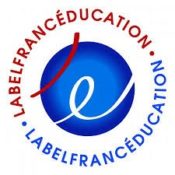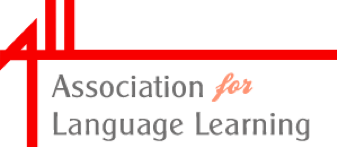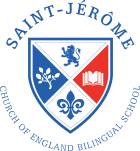French
At Saint Jerome School we offer a partial immersion bilingual curriculum experience that delivers the National Curriculum for England with the opportunity to develop a love and confidence in speaking, listening, reading and writing in French. Aspects of the curriculum are learnt in French and cultural awareness and experiences are gained all through the year. As the visual representation of our curriculum highlights, all pupils revisit the same French curriculum every year including the recurring topics and cultural celebrations, but they do so as they progress through the school with richer vocabulary, stronger phonic skills and a better mastery of grammatical structures.
Initially the focus in Reception is developing listening and attention skills – in both English and French. Children in Reception are exposed to the French language through a daily French session in which they listen to and join in with songs, rhymes and simple stories and become familiar with the sounds of French and learn the basic vocabulary that they need for the classroom routines. The routines for the day are reinforced through songs and staff use the English and French languages to greet children, to praise children and to give instructions. The focus is exclusively on speaking and listening and playing with sounds. Children work regularly with a French speaker in a small group to practise their speaking and listening skills (total immersion experiences or language showers) and to practise the vocabulary that they have learned. Children have the opportunity to use French in their learning of expressive art and design, working with our French speaking Art specialist teacher. Children begin to find out about people who speak French around the world and some of the customs and traditions of French speakers and gain confidence in producing unfamiliar sounds.
In Year 1 children begin to learn French phonics and begin to match the sounds of pure vowels (a, e, i, o, u) with letters. Children use our colour coding method to start reading simple French words with the coded vowels and the consonants that make the same sound in both languages. They continue to learn language patterns orally through songs and simple stories, reinforced in the daily French lesson. Children are exposed to increasingly greater use of the French language for instruction and classroom routines. The content of the National Curriculum for PE, Art and DT are delivered through the medium of French.
In Year 2 children continue to learn French phonics and begin to extend this to writing simple words and phrases within the phonic phase learnt. They acquire the codes for the most common digraphs (“ou”, “on”, “an”, “oi”) and apply those skills to write simple information about themselves from memory. They are starting to be aware of the gender of nouns and practise using the right determiners. As the bilingual actors of our bilingual nativity play, they gain great confidence in expressing themselves in public in French. The content of the National Curriculum for PE, Art and DT are delivered through the medium of French.
In Year 3 children gain more confidence in spontaneously answering in full sentences and applying a wider range of phonic skills to their reading and writing. They are starting to create descriptive sentences, positioning the adjectives of colour after the nouns and being made aware of agreement of adjectives. The content of the National Curriculum for PE, Art and DT are delivered through the medium of French.
At the end of year 4, some of our pupils are ready to officially valorise and certify their French abilities by taking the A1.1 Diploma of French Language Studies DELF PRIM, organised by the French Ministry of Education and recognised worldwide.
Through the sequenced and systematic acquisition of Vocabulary, Phonics and Grammar pupils are becoming more independent in their language production using all four modes.
They learn to understand some familiar and daily expressions used in very recurring situations of communication as well as very simple statements aiming at satisfying certain concrete needs of social life and can produce some. They can identify themselves and answer questions concerning for example their nationality, age, place of residence, school and ask questions of this type to somebody. They can participate in an ordinary interaction, at least partially, by means of simple statements. The whole of the Yr4 cohorts gets to learn a song written by the two older year groups and perform it in a French video entered for the Pop Video Competition organised by the Institut Français of the United Kingdom. Please follow these links to see our two award winning entries of 2021 and 2022.
Once they have taken a French phonics reading test, they can read authentic texts independently borrowed from our extensive library. The content of the National Curriculum for PE, Art and DT are delivered through the medium of French.
 |
 |
 |
